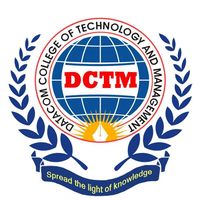Android is for all! The most widely used language for apps development for Android platform is – Java. This Android Training program is designed keeping in mind those individuals who are not comfortable with Java and Object oriented programming concepts.
During this Android Training program, we take you to a tour of Core Java where you get all the necessary Java skills which are required for developing Android applications.
During the Android training program, first of all, the individuals are exposed to a refresher program where they go through the basics of programming, software development life cycle, oops concepts, etc. Once all the people in the class develop a common understanding of the basics, the course dives deep into Android application development specific topics.
Objectives of the Android Training Program:
- > Application Development using Core Java
- > Android OS Architecture
- > Android Application Development Framework
- > Tapping Android Mobile Hardware such as Camera, Sensors, Wi-Fi & Bluetooth
- > Using Android Multimedia Framework
- > Database and Web services
- > End-to-End Software Development Activities
- *How to develop a simple android app
- Features of the Android Training Program:
- > 100% Job Assistance
- > In-depth coverage of Android application development layers.
- > Job Counseling
- > Interview preparation
- > Complete knowledge on SDLC
- > Knowledge & Awareness on BEST IT Practices
- > Real application development
- > Create your own Android App for the App Store
Android Training Course Syllabus:
- 1. History and Introduction
- This chapter talks about the evolution of Android mobile platform and introduces the concepts of the Android OS architecture and its layers.
- 2. Setup and Installation
- It explains how to download the Android SDK and start developing applications. It also introduces the Android developer tools such as Eclipse, ADT, etc.
- 3. Project Structure and Activity Life Cycle
- Chapter 3 takes an in-depth look at the fundamental Android application components. You will be exposed to the concepts of application manifest and external resources along with Activities, their lifetimes, and their life cycles.
- 4. Layout Manager
- You’ll learn how to create user interfaces with layouts. We explain which layout is suitable for which kind of scenario and pros and cons of each one of them.
- 5. Views and Menu
- In an Android application, the user interface is built using Views, and menus. We teach about various views available at developers’ disposal and explain their practical use. Along with the views, we also teach how to create various menu options in Android and how to effectively use them.
- 6. Handling Touch Events
- Views in Android respond to various events and there are more than one way to intercept the events from the user’s interaction. In this chapter you learn about the various callbacks which are required to be implemented to respond to user’s activities.
- 7. Animation and Drawing
- All the modern applications use animation and drawing for various purposes. It is ultimately the UI which makes a difference in the world of mobile apps. Android supports two mechanisms to create simple animations : (a.) Tweened Animation (b.) Frame-by-frame Animation. We teach both these mechanisms and also take you onto drawing basics so that you can draw your custom shapes, such as graphs, circles, geometric shapes etc.
- 8. Style and Theme
- Any discussion about UI design and creation is incomplete without the mention of style and theme. We emphasize on how to create consistent UI using common look and feel for similar views across the activities.
- 9. Intent
- In this chapter you learn the most interesting and occupying topic of Android. Unarguably the most important component of the Android framework, Intent, is taught at length and you learn how the global message passing mechanism works. You learn implicit and explicit intent calling mechanism. You will also understand how the Intent resolution takes place in Android.
- 10. Broadcast Receiver
- Broadcast Receiver is a component that responds to system-wide broadcast announcements. We explain how to deliver broadcasts and different ways to register broadcast receivers, set the priorities of the receivers and other aspects of the component.
- 11. Services
- This topic deals with the essential component of Android – Service. During the course, you learn how to perform long-running operations without affecting the foreground processes such as Activities. You will learn about various states of the service, and ways to perform interprocess communication
- 12. Content Provider
- Android framework does not provide a common data storage area that all Android packages (applications) can access. Content Provider provides an encapsulation mechanism to store and retrieve data and make it accessible to all applications. In this module, you will learn about in-built content providers. You will also learn how to write your own content provider from the scratch.
- 13. Resource Handling
- There are various resources an application uses such as : strings, images, arrays, etc. Recommended practice is to externalize all such resources and maintain them independently. We teach you how to externalize the resources, manage various configurations for different languages, locales, screen sizes, etc.
- 14. Database Sqlite
- Sqlite database is the de facto database supplied with Android. Android OS also contains the required libraries to manage this database. We teach you how to effectively use the database, various ways of creating it and performing CRUD operations. We cover various important classes such SqliteOpenHelper, ContentValue, etc. and the various useful methods which these classes expose.
- 15. Preference Management
- Shared Preferences is one out of the several options to persist application data and share is across multiple activities. It stores private primitive data in key-value pairs. We explore the best practices to use the framework and effectively save and retrieve data.
